Steve Bull's Blog, page 3
July 30, 2025
The Bulletin: July 23-29, 2025
If you’re new to my writing, check out this overview .
Plant, Persist, Prevail: Collective Grower Wisdom (#1)
Iran’s President ‘Ready’ For War With Israel, Will Not Halt Nuclear Program | ZeroHedge
The End of Academic Freedom (w/ Maura Finkelstein) | The Chris Hedges Report
Canada Advances National Digital ID With Consultants
7 Seemingly Harmless Household Habits Wrecking the Environment – Earth911
Food prices rise worldwide due to climate extremes, according to new report
The First Step To Behavioral Change
Geopolitical Powder Keg Erupts: Thai F-16s Strike Cambodian Targets In Border Clash | ZeroHedge
The Myth Of Neutral Technology
Rethinking Collapse – God’s Spies by Thomas Neuburger
Bananas, Coffee, Chocolate: How Climate Change Is Threatening the World’s Most Beloved Foods
Why the U.S. Should Put the IEA on Notice | Art Berman
CO2: Giver of Life — Giver of Death – by Ugo Bardi
OPEC Is Playing The Long Game | OilPrice.com
96% of oceans worldwide experienced extreme heatwaves in 2023, new study finds
Trump is fast-tracking new coal mines — even when they don’t make economic sense
One of the biggest microplastic pollution sources isn’t straws or grocery bags – it’s your tires
From Epstein to Exponential Debt: Signs of a System Unraveling
How To Build a Rocket Stove With Cinder Blocks
How Women Shaped Human Evolution Through Food Processing
We are undergoing unprecedented loss of freshwater across the planet | New Scientist
Global Water Supplies Threatened by Overmining of Aquifers: New Study — ProPublica
The Empire Isn’t Burning. The Sewer Just Backed Up.
Whole Earth Ponzi Scheme – by Geoffrey Deihl
Robert Kiyosaki Is Now Warning Of the Biggest Crash Ever
Day Three: Fighting Spreads Along Thai-Cambodian Border, Mass Civilian Exodus | ZeroHedge
The Dangerous Failure Of Net Zero
Conditioned To Be Helpless | how to save the world
Earth Overshoot Day Is Coming Sooner And Sooner | ZeroHedge
China’s $167 Billion Tibetan Dam Alarms Scientists, Neighbors | ZeroHedge
Resource Insights: Transformer bottleneck: Can the U.S. maintain and expand its electric grid?
The oceans are overheating—and scientists say a climate tipping point may be here | ScienceDaily
Fact-Checking Claims About a Proposed Hyperscale Data Center – Inside Climate News
How nanoplastics may be impacting our long-term health – CBS News
What you share with ChatGPT could be used against you
Nuclear Threats Are Back – Ken Klippenstein
UK Introduces Online Speech Monitoring Police
Variety Matters More Than You Think
It Is Too Late and We Have Lost the Fight Against Climate Change
Warming Arctic lakes may release more methane than expected
‘Collapse of Civilisation is the Most Likely Outcome’: Top Climate Scientists – resilience
If you have arrived here and get something out of my writing, please consider ordering the trilogy of my ‘fictional’ novel series, Olduvai (PDF files; only $9.99 Canadian), via my website or the link below — the ‘profits’ of which help me to keep my internet presence alive and first book available in print (and is available via various online retailers).
Attempting a new payment system as I am contemplating shutting down my site in the future (given the ever-increasing costs to keep it running).
If you are interested in purchasing any of the 3 books individually or the trilogy, please try the link below indicating which book(s) you are purchasing.
Costs (Canadian dollars):
Book 1: $2.99
Book 2: $3.89
Book 3: $3.89
Trilogy: $9.99
Feel free to throw in a ‘tip’ on top of the base cost if you wish; perhaps by paying in U.S. dollars instead of Canadian. Every few cents/dollars helps…
https://paypal.me/olduvaitrilogy?country.x=CA&locale.x=en_US
If you do not hear from me within 48 hours or you are having trouble with the system, please email me: olduvaitrilogy@gmail.com.
You can also find a variety of resources, particularly my summary notes for a handful of texts, especially William Catton’s Overshoot and Joseph Tainter’s Collapse of Complex Societies: see here.
July 25, 2025
Today’s Contemplation: Collapse Cometh CCXIII–Keep Calm and Carry On…Human Ingenuity and Technology Will Save Us! Part 1
Human cognition and the many psychological mechanisms that impact our species’ comprehension, emotions, and beliefs about the world are fascinating subjects, as is epistemology (aka the ‘theory of knowledge’).
Despite being mostly enthralled with biology during my late high school education and physiology during my early university years, I wandered into studying psychology for a couple of years while pursuing my second bachelor’s degree before becoming more interested in human evolution and completing a Master of Arts degree in anthropology/archaeology.
It was the use of Stephen Jay Gould’s Ever Since Darwin text in an introductory psychology course that sparked my interest in human physical evolution and then a chance meeting with one of the university’s senior archaeologists to help advise on course selection within the anthropology department which steered me into that field and an eventual graduate degree that focussed on North American archaeology (working on a variety of pre/historic sites in Ontario, Canada, and Oaxaca, Mexico).
I read up on epistemology mostly on my own as a side interest while studying archaeology being exposed to some very interesting aspects in introductory psychology and anthropology courses (particularly philology and hermeneutics), and then also auditing a senior philosophy course on archaeological theory–little of which I understood having none of the fundamental background knowledge; I don’t know what the hell I was thinking by enrolling in it. (See: Decline of ‘Rationality’. Website Medium Substack)
A handful of my Contemplations that discuss human psychology:
Despite Warnings We Have Continued Business-As-Usual and Doubled-Down On Our Avoidance Behaviours. Website Medium Substack
Avoiding ‘Collapse’ Awareness. Website Medium Substack
Reality is an Inconvenience to Beliefs. Website Medium Substack
Most People Don’t Want Their Illusions Destroyed. Website Medium Substack
Carbon Tunnel Vision And Resource/Energy & Ecological Blindness, Part 1, Website Medium Substack Part 2, Website Medium Substack Part 3. Website Medium Substack
Cognition and Belief Systems in a ‘Collapsing’ World: Part One, Website Medium Substack Part Two–Deference to Authority, Website Medium Substack Part Three–Groupthink, Website Medium Substack Part Four–Cognitive Dissonance, Website Medium Substack Part Five–Justification Hypothesis, Website Medium Substack Part Six–Sociopolitical ‘Collapse’ and Ecological Overshoot, Website Medium Substack
Yes, I spent the entire 1980s in three universities (Western, McMaster, Brock) chasing a number of degrees, settling into a career in education by the end of the decade–it’s where the jobs were at the time (and this hot girl I had met was interested in that profession). Thankfully my hometown had a university, so I did not have to pay for room and board for most of the first two degrees (I got married during the second one and we moved into the university’s married-students residence that was very reasonably priced, with rent being based upon income. With both of us being students, the rent was relatively low reflecting our income–we celebrate our 40th anniversary next summer).
I had a relatively good-paying job working part-time in a grocery store so I was able to pay for much of this self-indulgence, working 20-24 hours a week on top of my classes (although I did accumulate some student loans along the way as well that I paid off quickly after graduating–interest rates were about 14% at the time that I had to start repaying them–with the help of working part-time in The Beer Store on top of my working full time as a classroom teacher). Thank the stars for youthful energy, especially those 4 months or so early in my university days that I spent working full-time from 10 p.m. to 6:30 a.m. stocking shelves before heading home for a quick shower and then off to the university for my physiology classes that began at 8:30 a.m.–typically sleeping from about 2-3 p.m., until 9 p.m..
Anyways, I raise this fascination with psychology because as humanity’s large, complex societies continue their journey along the Seneca Cliff of ‘collapse’, one should expect not only a considerable increase in the symptoms that signal societal decline/simplification, but more importantly from a human psychological perspective a significant and concomitant shift in the beliefs and human responses (emotional and behavioural) that accompany the increased tension that arises from the ecological and societal deterioration that is occurring and becoming more obvious and difficult, if not impossible, to ignore.
Humans are, if nothing else, a highly ‘intelligent’ species engaged in enormously complex thinking and behaviours to reduce/avoid our anxiety/stress (pain) and increase our optimism/positive ‘vibes’ (pleasure). And, given our story-telling nature, we often do this via the tales we tell ourselves and others, with these stories influencing every aspect of our cognition, beliefs, emotions, and actions–and not always in a positively adaptive manner.
Oftentimes, it would appear, we employ maladaptive strategies but believe they are helpful and create a variety of narratives to support and defend them–even if there is overwhelming evidence that they are ill-informed, quite flawed, and in many cases defy biological processes, geological limitations, and physical laws. And we are, unfortunately, helped along these ‘destructive’ pathways by members of our own species who leverage perceived crises and our fear and anxiety about them to expand their personal wealth and power. [Note: I am using ‘we’, ‘our’, ‘us’ as a generalisation throughout this writing.]
A handful of my Contemplations that touch on how crises are leveraged against us:
Rackets: Keeping the Curtains on Reality Drawn. Website Medium Substack
Energy and Its Interconnections With Our Financialised Economic System. Website Medium Substack
Fiat Currency Devaluation: A Ruling Elite ‘Solution’ to Growth Limits. Website Medium Substack
Rackets: Keeping the Curtains on Reality Drawn. Website Medium Substack
Ruling Elite Rackets Everywhere….. Website Medium Substack
Societal Decline and Concomitant Stressors
In his 1988 monograph The Collapse of Complex Societies archaeologist Joseph Tainter argued that human societies at their core are problem-solving organisations and that they increase in complexity through ever-increasing investments in problem-solving. This approach, however, eventually reaches a point when marginal productivity and effectiveness of the ‘solutions’ being pursued can no longer rise–complexity can still accrue some benefits past this point, but at a declining marginal rate.
As the ‘solutions’ pursued begin to lose their efficacy and perceived issues go unresolved, societal stress begins to grow–this is primarily due to our tendency to use the easiest-to-achieve and least-expensive-to-implement ‘solutions’ first, leaving the more difficult and expensive approaches until later in our problem-solving approach–i.e., we pick the lowest hanging fruit to begin then move to the ones that require more ‘investments’, especially in terms of resources (particularly energy).
Add to this growing strain that many, if not all, of the ‘solutions’ we pursue tend to lead to larger and more convoluted ‘problems’ down the road due to expanding complexity, nonlinear feedback, and unforeseen complications/consequences. This increases societal stressors as time goes by and requires more and more problem-solving efforts and investments, sometimes to a point where the ‘costs’ outweigh the ‘benefits’. A positive feedback loop emerges that is difficult if not impossible to escape from (See: Problem Solving: Complexity, History, Sustainability. Website Medium Substack). [Note: I put ‘problem’ and ‘solutions’ in quotes as much of what we are dealing with are not ‘problems’ but predicaments that have no solutions, only outcomes—see Erik Michaels’ writing on this important clarification—particularly when we are dealing with the stresses related to ecological overshoot and all of its symptom predicaments.]
Tainter goes on to suggest that today’s rising “concern with collapse and self-sufficiency may itself be a significant social indicator, the expectable scanning behaviour of a social system under stress, in which there is an advantage to seeking lower-cost solutions” (p. 210).
This scanning behaviour Tainter is speaking of refers to the expansion of general awareness and associated assessments that a social system employs when it senses challenges or stressors. It reflects how a society measures its environment in order to find adaptive strategies (proactive and reactive ‘problem solving’) that support and sometimes enhance survival. The hope is that vulnerabilities can be identified and crises anticipated by monitoring change, gathering relevant information, and adopting strategies that can address the pending or occurring issues. But more often than not, I would argue, we are being reactive in our problem-solving behaviour as opposed to proactive; however, either approach tends to result in greater complexity and additional ‘problems’ to ‘solve’.
To sum up this scanning behaviour and what arises from it: when the social and physical environments that we exist within begin to exhibit significant stress, humans increasingly notice and begin to look for ways in which that stress can be relieved. This stress relief is usually via some form of ‘problem solving’ investment. There is a good argument to be made to suggest that this is a classic ‘fight-or-flight’ response to alleviate anxiety/avoid pain.
What are some of the more obvious stressors that seem to be rising to the surface of societal awareness? I’ve listed some in the following table and how they seem to manifest themselves.

These stressors seem to be exploding across nations and the globe, an indication of our global, industrial societies experiencing systemic strain and declining resilience. Such change significantly increases the potential for societal ‘collapse’; it doesn’t guarantee it, it simply sets up a society for a stress surge that cannot be addressed and pushes it past a tipping point. (See: Collapse = Prolonged Period of Diminishing Returns + Significant Stress Surge(s) Part 1, Website Medium Substack Part 2, Website Medium Substack Part 3, Website Medium Substack Part 4, Website Medium Substack)
Depending upon one’s perspective, the cause of these stressors varies widely. Most tend to be somewhat reductionist in their evaluation leading to the pointing of fingers at individual determinants, especially at the political and/or economic systems. And while these certainly play a not non-significant role, the vast majority of this thinking neglects the complexity of systems and especially the biogeophysical aspects that I would argue underpin the increasing stress our globalised, industrial societies are experiencing; especially biological processes (e.g., ecological overshoot), geological constraints (e.g., finite resource limitations), and physical laws (e.g., thermodynamic, especially entropy).
It is rare indeed that there is any consideration or discussion regarding the notion that many if not all of the predicaments we are facing are the result of humanity having bumped up against and are now experiencing the consequences of ecological overshoot as laid out by Meadows et al in their 1972 text, The Limits to Growth, and William Catton Jr. in his 1980 monograph, Overshoot:The Ecological Basis of Revolutionary Change.
For the most part, what one must not do is challenge the ideas of economic growth and its associated ‘progress’ for they are the dominant and preferred mindsets within the modern zeitgeist, and must be maintained regardless of the ‘costs’.
Human Psychological Responses To Stressors
Regardless of the causes of these stressors, the responses by our species to them vary rather widely with much depending upon sociocultural context, community dynamics, available resources, and personal circumstances. And while some may simply seek more information about what is occurring, others pursue more actionable pathways–such as adapting behavioural changes that can steer individuals and/or communities towards ‘sustainable’ practices and self-sufficiency, relocating/migrating from a ‘failing’ region/nation, or engaging on a sociopolitical level–it is the psychological reactions that I am focussing upon in this Contemplation.
The psychological repercussions of growing societal stressors are exceedingly complex and also quite varied. Some people handle stress much better than others, with much depending upon personal experiences and personality traits, but also sociocultural norms and expectations.
The tendency of some in the face of growing societal stress is to lay the blame at the feet of others and we see this in the rise of ‘othering’ alongside both domestic and geopolitical strife. Some actually take a diametrically-opposite path with attempts to form altruistic networks and organisations to support individuals and communities.
Still others don’t even acknowledge these stressors, wondering what all the fuss is about. James Howard Kunstler has argued that many, perhaps most, are simply too caught up in the ‘thrum of daily life’ and personal/family stress that takes precedence over concerns about societal-level stressors (I often think about the ‘privilege’ I have in being able to contemplate and then pontificate about in my writing these issues and topics in light of some of the tragedies and situations others in this world are experiencing on an almost daily basis–some not small number of people are struggling to avoid sectarian violence, survive the next bombing run, put food on the table, and/or pay for or find shelter).
Additionally, I wouldn’t be surprised if part of this ‘lack of interest’ is due to the large number of individuals in our ‘modern’ societies being medicated for anxiety/depression–a personal communication from one of our local pharmacists a couple of years ago caused me to pause when he declared that he guessed a good half of our town’s adult residents were on anti-anxiety/-depressant medication; likely exaggerated, but still…
And then, of course, there are all the distractions that the ruling elite help to maintain–the Roman ‘bread and circuses’; ‘modernity’s’ version being found mostly in the entertainment industry (think musical performances, video games, theme parks, film and television production, sports, etc.).
While fear and anxiety about external stressors can overwhelm some, perhaps the most common reactions are reflective of the grieving stages (much of the above few paragraphs on responses can be categorised into these). When societies experience stress, it is common to have to confront loss and significant change, and the stages of grieving are a reflexive response to this as they help to alleviate anxiety-provoking thoughts and fear.
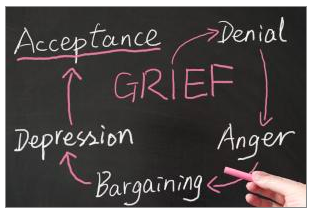
The defence mechanism of denial is one of the initial ones employed when confronting stress. It is the refusal to accept the reality that one is experiencing. It is oftentimes a temporary coping strategy to help protect oneself from overwhelming emotions. If the issue doesn’t exist, neither does the emotional torment. Problem solved.
However, in the context of a failing society, this reaction can lead to more problematic outcomes since it delays actions that might help to reduce the negative consequences that accompany ecological overshoot and societal simplification. Denial often results in the belief that things are not nearly as bad as portrayed by some and that stability will reassert itself soon enough even in the face of evidence to the contrary.
And then there’s the bargaining stage.
At this point in our global, industrial society’s ‘collapse’ I am witnessing a significant rise in this particular phase of grieving–it could just be my confirmation bias (I’ve noted it and now I see it everywhere). It would seem that more and more people are moving past the denial stage–more-or-less acknowledging that there are growing signs of societal and ecological stress–and into that of attempting to negotiate themselves and/or society’s way out of the situation to avoid the associated anxiety and loss.
Oftentimes, the bargaining by way of seeking ‘solutions’ is aimed at sustaining current living arrangements with as little inconvenience as is possible. Many appeal to our politicians and political institutions (naively, in my opinion, believing the decision makers in these systems actually have the best interests of the masses at the top of their agendas). Others put their faith in the ‘free market’ and corporate ‘leaders’ (believing that ‘rational’ choices by consumers and human innovation will lead us to the promised land). And some turn to society’s ‘experts’ and academics, having placed ‘science’ on a pedestal that is ‘objective’, definitive in its conclusions, and capable of ‘solving’ all ‘problems’ given enough time and resources (not appreciating the impossibility of our species to have complete objectivity, the influence that paradigms and incentives have on steering a lot of research, and the leveraging of this approach by various profiteers–including our political class).
A handful of my Contemplations that discusses these appeals to authority:
The Politics of Dancing: The politicians are now dj’s…. Website Medium Substack
She Blinded Me With Science, and More On The ‘Clean’ Energy Debate…. Website Medium Substack
Solace Will Not Be Found Within Our Sociopolitical Systems—Biogeophysical Limitations Cannot Be Overcome By Way Of Policy. Website Medium Substack
Our Political Systems Are Not Going To Help Our Predicament As They Want/Need Growth. Medium Substack
Sociopolitical Agency, Narrative Control, and Collapse. Medium Substack
Being who we are–a story-telling ape with the ability to devise and construct various complex tools–we are tending to gravitate towards utopian tales of unending progress and ‘relevant’ technologies in our attempts to ‘solve’ and/or mitigate the array of societal and ecological stressors. Most of the technologies we are employing tend to be ‘quick fixes’, the lower-hanging fruit of ‘solutions’. On top of this many are spreading fantastical tales through their support of prototypes or conceptual/as-yet-to-be-hatched technologies that will ‘save’ humanity and the planet–all of them quite magical in their ability to be ‘clean and sustainable’.
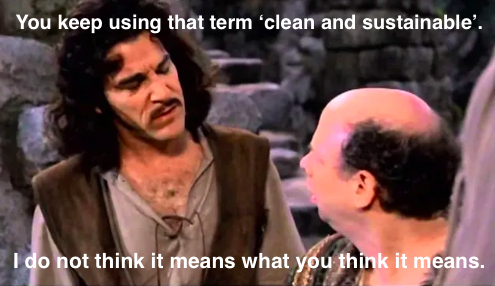
Unfortunately, this problem-solving approach that humanity tends to use ignores both the complexity and deeper structural aspects of the issues we are facing. And more often than not, we have been drawn towards the idea that technological fixes in particular are sufficient to prevent, address, or reverse precarious situations. Because, after all, technology is always ‘progressing’ as it’s always getting better (‘new and improved’), and human ingenuity guarantees this forever and ever. Amen!
This stage of grieving that strives to confront loss and change also aims to maintain/regain a sense of agency in our lives and societies. In trying to retain a sense of power over our lives, quick-fix solutions are quite appealing. We often don’t care if they are getting to the root of the issue or not. Does it provide, even temporarily, immediate relief from the stress/anxiety being experienced? Yes? Then let’s do it and to hell with the fallout or we will deal with it, if any, down the road. And since we’re such an intelligent species, we will ‘solve’ such repercussions…eventually.
This is guaranteed because it’s always worked in the past–only it hasn’t.
In Part 2, I will explore this human ingenuity and technological prowess aspect further and its use to bargain our way out of societal and ecological collapse. And what prompted me to write this Contemplation.
What is going to be my standard WARNING/ADVICE going forward and that I have reiterated in various ways before this:
“Only time will tell how this all unfolds but there’s nothing wrong with preparing for the worst by ‘collapsing now to avoid the rush’ and pursuing self-sufficiency. By this I mean removing as many dependencies on the Matrix as is possible and making do, locally. And if one can do this without negative impacts upon our fragile ecosystems or do so while creating more resilient ecosystems, all the better.
Building community (maybe even just household) resilience to as high a level as possible seems prudent given the uncertainties of an unpredictable future. There’s no guarantee it will ensure ‘recovery’ after a significant societal stressor/shock but it should increase the probability of it and that, perhaps, is all we can ‘hope’ for from its pursuit.”If you have arrived here and get something out of my writing, please consider ordering the trilogy of my ‘fictional’ novel series, Olduvai (PDF files; only $9.99 Canadian), via my website or the link below — the ‘profits’ of which help me to keep my internet presence alive and first book available in print (and is available via various online retailers).
Attempting a new payment system as I am contemplating shutting down my site in the future (given the ever-increasing costs to keep it running).
If you are interested in purchasing any of the 3 books individually or the trilogy, please try the link below indicating which book(s) you are purchasing.
Costs (Canadian dollars):
Book 1: $2.99
Book 2: $3.89
Book 3: $3.89
Trilogy: $9.99
Feel free to throw in a ‘tip’ on top of the base cost if you wish; perhaps by paying in U.S. dollars instead of Canadian. Every few cents/dollars helps…
https://paypal.me/olduvaitrilogy?country.x=CA&locale.x=en_US
If you do not hear from me within 48 hours or you are having trouble with the system, please email me: olduvaitrilogy@gmail.com.
You can also find a variety of resources, particularly my summary notes for a handful of texts, especially William Catton’s Overshoot and Joseph Tainter’s Collapse of Complex Societies: see here.
July 23, 2025
The Bulletin: July 16-22, 2025
If you’re new to my writing, check out this overview .
Is There Enough Water to Quench the Thirst of AI Super Data Centers? | The Epoch Times
Mitigation and Other Unspeakable Horrors – Ecosophia
The Myths Shaping Our Economies: The Disconnect between Economic Theory and Reality
Caffeine May Slow Cellular Aging By Activating a Protective Stress Response
Relief from drought in southwest U.S. likely isn’t coming, according to new research
NBL Live presentation: 485 Million years of climate info ignored. | Kevin Hester
Diesel Supply Risk–News Roundup
Surviving and Thriving: Earning a Living In a Dystopian World
U.S. proved reserves fell in 2023 from 2022 record – U.S. Energy Information Administration (EIA)
Health Prepping: Eliminate Those Forever Chemicals
Modern Civilization Is Proving To Be a Very Fragile Thing
Nobody Lives “Off The Grid” – by Jessica
Large landslide disrupts water supply to 400 000 near Quito, Ecuador – The Watchers
The Way I See It – by Jeff McFadden – A Systemic Approach
Our Loathing Of Complexity | how to save the world
Waking Up To Reality: The End of Denial – Itsovershoot
If You Seek the Truth, Look for What’s Taboo
Societal Collapse Is Not a Bug
Forsaking Cahokia: Five Lessons From The Collapse of a Native American Empire
Go Solar, Go Vegan and Still Collapse
The ecological economy of food – by Gunnar Rundgren
Humans Are Wiping Out Water Bodies That Life Depends On, New Report Says – Inside Climate News
LISTEN TO THE DOERS – by Margi Prideaux, PhD
Carpe Momentum: The Climate Crisis Won’t Be Fixed, It Will Be Exploited
My Most Powerful Economic Insight
If you have arrived here and get something out of my writing, please consider ordering the trilogy of my ‘fictional’ novel series, Olduvai (PDF files; only $9.99 Canadian), via my website or the link below — the ‘profits’ of which help me to keep my internet presence alive and first book available in print (and is available via various online retailers).
Attempting a new payment system as I am contemplating shutting down my site in the future (given the ever-increasing costs to keep it running).
If you are interested in purchasing any of the 3 books individually or the trilogy, please try the link below indicating which book(s) you are purchasing.
Costs (Canadian dollars):
Book 1: $2.99
Book 2: $3.89
Book 3: $3.89
Trilogy: $9.99
Feel free to throw in a ‘tip’ on top of the base cost if you wish; perhaps by paying in U.S. dollars instead of Canadian. Every few cents/dollars helps…
https://paypal.me/olduvaitrilogy?country.x=CA&locale.x=en_US
If you do not hear from me within 48 hours or you are having trouble with the system, please email me: olduvaitrilogy@gmail.com.
You can also find a variety of resources, particularly my summary notes for a handful of texts, especially William Catton’s Overshoot and Joseph Tainter’s Collapse of Complex Societies: see here.
July 16, 2025
The Bulletin: July 10-16, 2025
If you’re new to my writing, check out this overview .
Why the world needs renewable food – by Julian Cribb
‘Green’ China Runs On Dirty Coal | ZeroHedge
Doug Casey on Why the Military-Industrial Complex Always Wins
Court Orders Bank Freezing Records in Freedom Convoy Case
Science Snippets: Thawing Permafrost Triggers Carbon Release in the Arctic
Our Gordian Knot – by Geoffrey Deihl
Units of Survival: We’re On Our Own
The Purpose of Government – by Matt Orsagh
False Flag Incoming? “We the People Refuse to be Deceived Again”. Mikki Willis – Global Research
How to Dress and Undress your Home | LOW←TECH MAGAZINE
The Ultimate Guide to Bug Out Bags: What They Are, Why You Need One, and How to Build Yours
Louisiana is the latest state to greenwash gas | Grist
What should you eat for health? – by Meryl Nass
The Conundrum of Money and Farming
Cambridge Researchers Find Gut Bacteria Could Help Remove ‘Forever Chemicals’ From Body | ZeroHedge
Blackouts Could Increase 100x, DOE Reliability Report Finds
The World Has a Serious Coal Problem
Study Reveals How Many Cups Of Coffee Needed To Shield Against Liver Disease | ZeroHedge
We’re 89 seconds from midnight — and it’s not just the nukes – EHN
The Collapse Prep Bug Out Plan: Tactical Planning For the Worst Case Scenario
Science Snippets: Wealthiest 10% Cause 2/3 of Global Heating
The oceans may contain much, much more plastic than previously thought | Grist
Sand and dust storms affect about 330 million people in over 150 countries, UN agency says
David Suzuki: “We should be scared stiff”
I Told You the Bayer Pesticide Liability Shield Would Be Coming
Worrying indications in recently updated world energy data
Systems: Overshoot and Collapse
The next ‘Storm of the Century’ could be even stronger, new study shows | CNN
The Empire’s Mildewed Collapse – by Mary Geddry
Economists Now Say Prices Will Continue To Rise
You Were Lied to About Exercise – by Erin Nystrom
Landscaping For Habitat, Soil Health, and Flood Control
The Looming False Flag That Could Ignite World War 3 in 2025
If you have arrived here and get something out of my writing, please consider ordering the trilogy of my ‘fictional’ novel series, Olduvai (PDF files; only $9.99 Canadian), via my website or the link below — the ‘profits’ of which help me to keep my internet presence alive and first book available in print (and is available via various online retailers).
Attempting a new payment system as I am contemplating shutting down my site in the future (given the ever-increasing costs to keep it running).
If you are interested in purchasing any of the 3 books individually or the trilogy, please try the link below indicating which book(s) you are purchasing.
Costs (Canadian dollars):
Book 1: $2.99
Book 2: $3.89
Book 3: $3.89
Trilogy: $9.99
Feel free to throw in a ‘tip’ on top of the base cost if you wish; perhaps by paying in U.S. dollars instead of Canadian. Every few cents/dollars helps…
https://paypal.me/olduvaitrilogy?country.x=CA&locale.x=en_US
If you do not hear from me within 48 hours or you are having trouble with the system, please email me: olduvaitrilogy@gmail.com.
You can also find a variety of resources, particularly my summary notes for a handful of texts, especially William Catton’s Overshoot and Joseph Tainter’s Collapse of Complex Societies: see here.
July 9, 2025
The Bulletin: July 3-9, 2025
If you’re new to my writing, check out this overview .
CO2 is Not Good for Your Health! – by Ugo Bardi
Peak Shale Amid Maximum Pessimism
Climate Change: An Unwelcome Future – Ecosophia
Naming What’s Broken | how to save the world
The Myth of Infinite Growth – by Justin McAffee
Resilience is Resistance | Max Wilbert – by Rachel Donald
Droughts worldwide pushing tens of millions towards starvation, says report
Farmer confidence battered by climate change – new research
The One Big Beautiful Bill Is a Big Corporate Cash Grab
Collapse–Part 4 / 5: Bargaining
WAKE WHILE YOU CAN – by Margi Prideaux, PhD
‘It’s too late’: David Suzuki says the fight against climate change is lost – iPolitics
You Can’t Grow Your Way Out: The GOP’s Debt Delusion Exposed
Only one nation is self-sufficient in healthy food
We’ve Already Defaulted – by Quoth the Raven
‘Tipping points’ experts issue urgent message to world leaders – News
The Ocean at Its Limit: Climate, Collapse, and the Future of Life | Art Berman
The First 72 Hours: Navigating the Chaos of a Natural Disaster
The Tale of Two Energy Transitions – The Honest Sorcerer
Tom Murphy Stubborn Expectations (on population) | Peak Everything, Overshoot, & Collapse
South Australia ‘helpless’ in face of deadly marine algal bloom spreading to Adelaide beaches
Southern Ocean current reverses for first time, signalling risk of climate system collapse
FOOD + WATER = well, POOP! – by Margi Prideaux, PhD
“Runaway Spending”: Canada on Track for $92 Billion Deficit, Think Tank Projects | ZeroHedge
War Is a Certainty – Doug Casey’s International Man
Canada Eyes Revival of Online Censorship Bill
Reclaiming Energy, Reimagining Power: Building Energy Futures from Below – resilience
The Dawn of Nothing | Art Berman
How to protect your health if a disaster strikes your community | Grist
Ganges basin peak flows fall 17% per decade, shifting flood and water supply patterns across India
Will Japan’s Rice Price Shock Lead To Government Collapse And Spark A Global Bond Crisis | ZeroHedge
I Like People: It’s Just Civilization I Can’t Stand | how to save the world
Oil Markets Are Tighter Than They Look | OilPrice.com
Book Review: Food, Energy, and Society
If you have arrived here and get something out of my writing, please consider ordering the trilogy of my ‘fictional’ novel series, Olduvai (PDF files; only $9.99 Canadian), via my website or the link below — the ‘profits’ of which help me to keep my internet presence alive and first book available in print (and is available via various online retailers).
Attempting a new payment system as I am contemplating shutting down my site in the future (given the ever-increasing costs to keep it running).
If you are interested in purchasing any of the 3 books individually or the trilogy, please try the link below indicating which book(s) you are purchasing.
Costs (Canadian dollars):
Book 1: $2.99
Book 2: $3.89
Book 3: $3.89
Trilogy: $9.99
Feel free to throw in a ‘tip’ on top of the base cost if you wish; perhaps by paying in U.S. dollars instead of Canadian. Every few cents/dollars helps…
https://paypal.me/olduvaitrilogy?country.x=CA&locale.x=en_US
If you do not hear from me within 48 hours or you are having trouble with the system, please email me: olduvaitrilogy@gmail.com.
You can also find a variety of resources, particularly my summary notes for a handful of texts, especially William Catton’s Overshoot and Joseph Tainter’s Collapse of Complex Societies: see here.
July 2, 2025
The Bulletin: June 26-July 2, 2025
This past week’s articles of interest…
If you’re new to my writing, check out this overview .
Farming Ourselves to Extinction: The Great Tulip Uprising of 1822 – George Tsakraklides
Indicators of Global Climate Change
‘This is a fight for life’: climate expert on tipping points, doomerism and using wealth as a shield
Shell In Talks To Acquire BP In Blockbuster $80 Billion Deal | ZeroHedge
Martial Law in Mascara: How FDR Hijacked the Constitution and No One Told You › American Greatness
Science Snippets: Climate Change Drives Increased Arsenic in Rice
Doomerism at the End of the Universe – Watching the World Go Bye
Pestilence: Another Consequence of Losing the Cryosphere and the Permafrost | Kevin Hester
Water Whispering Catching the Sky In A Collapsing World
Our Steady March To Catastrophe
The Economy and Its Future In Four Charts
IEA Doubles Down On Peak Oil Demand Forecast | OilPrice.com
‘We are perilously close to the point of no return’: climate scientist on Amazon rainforest’s future
Eggs Strengthen Muscles And Help Prevent Sarcopenia – How Many Should You Eat? | ZeroHedge
The Shattering of Illusions: Iran, Israel, and the End of Strategic Restraint | Art Berman
How high-latitude peat and forest fires could shape the future of Earth’s climate
Twelve Steps For Civilization in Collapse
Crumbling Empires – by Nathan Knopp – System Failure
Anthills of Civilization – The Honest Sorcerer
The Pinnacle of Intelligence and Intense Competition
The End of Growth and The Zero Sum World
Digna Vox in a Lawless World: Lessons from a Falling Empire
The Inconvenience Of Imminence
Debanking Was Yet One More Government-Initiated Scam To Rejigger the Economy and Punish Enemies
Grids Close To the Edge During Heat
The No-Win Bubble Wealth Effect: Either Way We Lose
Homesteading: Eat Your Vegetables
Ultra-Processed Foods Linked To Brain Changes That Drive Overeating | ZeroHedge
“ THE SCIENCE OF OIL ” 1962 SAUDI ARABIAN OIL PRODUCTION PROMO FILM ARAMCO RL10035
Critical reservoirs Lakes Mead, Powell hit ‘alarmingly low levels’ again
Earth’s Energy Imbalance Is More Than Double What It Should Be – And We Don’t Know Why
If you have arrived here and get something out of my writing, please consider ordering the trilogy of my ‘fictional’ novel series, Olduvai (PDF files; only $9.99 Canadian), via my website or the link below — the ‘profits’ of which help me to keep my internet presence alive and first book available in print (and is available via various online retailers).
Attempting a new payment system as I am contemplating shutting down my site in the future (given the ever-increasing costs to keep it running).
If you are interested in purchasing any of the 3 books individually or the trilogy, please try the link below indicating which book(s) you are purchasing.
Costs (Canadian dollars):
Book 1: $2.99
Book 2: $3.89
Book 3: $3.89
Trilogy: $9.99
Feel free to throw in a ‘tip’ on top of the base cost if you wish; perhaps by paying in U.S. dollars instead of Canadian. Every few cents/dollars helps…
https://paypal.me/olduvaitrilogy?country.x=CA&locale.x=en_US
If you do not hear from me within 48 hours or you are having trouble with the system, please email me: olduvaitrilogy@gmail.com.
You can also find a variety of resources, particularly my summary notes for a handful of texts, especially William Catton’s Overshoot and Joseph Tainter’s Collapse of Complex Societies: see here.
July 1, 2025
Today’s Contemplation: Collapse Cometh CCIX– Keep Calm and Carry On… Human Ingenuity and Technology Will Save Us! Part 2
Keep Calm and Carry On…Human Ingenuity and Technology Will Save Us! Part 2
In Part 1 of this Contemplation (Website Medium Substack) I discuss how our species seems to be responding to the signals our planet and society are sending as they become increasingly stressed. This strain, I argue, is a result of humanity’s ever-present problem-solving behaviour that not only increases complexity but consumes huge amounts of resources while creating significant quantities of waste that is overloading compensatory sinks.
This particular approach to ‘solving’ problems has helped to lead humanity past the natural carrying capacity of our planet and into the predicament of ecological overshoot. Research suggests that we have, in fact, surpassed a number of planetary boundaries in our drive to ‘solve’ most of the issues we encounter in our survival quest.
(https://www.stockholmresilience.org/research/planetary-boundaries.html)Because of our overshoot and the environmental and societal stressors it is resulting in, we highly emotional beings have managed the anxiety that accompanies the sense of loss and change that the consequences of overshoot bring in a variety of ways. As story-tellers and tool-makers, humans have created tales and technologies to help in our pain avoidance and aid in our survival. [Note: while the ways in which Homo sapiens address this pain-avoidance/pleasure-seeking behaviour are unique, the basic behavioural response is not (aka Thorndike’s Law of Effect–while not a ‘hard and fast’ law–does seem to help explain a lot of animal behaviour).]
As a result of all this, a growing number of people seem to be attempting to negotiate their way out of our various predicaments in order to reduce their anxiety/pain. And many have done/are doing this by placing their faith in quick techno-fix ‘solutions’. Many of these ‘solutions’, however, are neither sustainable nor even actually being produced (they’re conceptual/theoretical in nature); and their pursuit is and will continue to exacerbate the ‘problems’ they are being called upon to ‘solve’.
As our unsustainable, global-industrial society continues its journey towards ‘collapse’ and the tension grows between our propensity to expand (both on a population and economic level) and the ecological systems of our planet, we should expect the psychological defense mechanisms most humans are employing to minimise the stress to become more pronounced (as Kevin Hester suggested in a comment on Part 1, “the perfect storm of non-linear change and exponential cognitive dissonance”. Concomitantly, we are increasingly likely to experience a doubling-/tripling-down of this rush to find quick solutions by way of our dominant adaptive behaviour: pursuing technologies. And it doesn’t help that the world’s profiteers are pushing the industrial products they help to manufacture and sell as humanity’s salvation.
That is what this Contemplation discusses.
You Got A Problem? We Got A Solution!
As problem-solving organisations society begins to search for ‘solutions’ when ‘problems/stressors’ arise. Typically it zeroes in on the easiest-, quickest-, and least-expensive-to-implement. But just as important as actual actions and policies to address issues is the narrative management that is employed to convince the masses that not only are things being done to address ‘problems’ (so as not to stoke dissatisfaction with the status quo) but that the future is bright and things are getting better because, for example, governing institutions and/or the ‘free market’ work marvellously.
However, faith in the status quo institutions and arrangements can wane, and humanity’s repeated experiments in large, complex societies has shown this again and again.
It would appear that throughout pre/history one approach to this faltering support of society has been to abandon the failing/collapsing systems, especially once the ‘costs’ shouldered by participants outweigh the ‘benefits’ accrued. Families/communities appear to break away from the society in question, as observed in the demographic data via archaeological digs–for example, the largest ‘markers’ of complex societies (i.e., urban centres) display significant population decline just prior to or during the time a society begins to show signs of failing/simplifying institutions (especially sociopolitical ones).
In fact, today’s seemingly significant increase in concern for/awareness of societal collapse, according to archaeologist Joseph Tainter, is an indicator of rising stress with evermore individuals and groups turning to alternative systems of living. Ecovillages. Permaculture. Regenerature agriculture. Transition towns. Pursuing a movement away from modernity’s complex arrangements and living more simply and, ideally, sustainably is therefore a possible response to the expansion of societal and ecological stressors.
Another approach, on a sociopolitical level, is that the societal ‘leaders’ and its various institutions may attempt to unify members and pursue collective action. This is mostly embarked upon via rhetoric and narrative management but can, of course, lead to more ‘forceful’ forms of societal ‘unification’, especially when narrative control is lost.
Typical in this approach of collective action is the leveraging of perceived crises (oftentimes overblown and/or created) to justify policy changes–changes that oftentimes aim to advance favoured agendas that serve to enrich the ruling class. This approach tends to be ‘successful’ since fear is perhaps our strongest emotion and reducing/eliminating it is highly motivating.
And with our species’ tendency to defer to authority, if our ‘leaders’ offer a ‘solution’ to a substantive ‘problem’, the masses lean heavily towards accepting and supporting it (see this). It is no surprise that this approach is often used by the ruling elite given what I have argued several times in previous writings is their primary motivation: the continued control and maintenance/expansion of their revenue streams and the power and prestige that comes with this.
Apart from ‘walking away’ from a ‘collapsing’ society or pursuing ‘collective action’, the most common approaches that are employed by a society’s attempts to adapt to changing conditions gravitate towards resource allocation, technological innovation, and societal flexibility. Drawing upon experience and past crises, societies often employ strategies that have worked previously; technological innovation being the most common one.
The approach of technological innovation has been with Homo sapiens since soon after our species arrived on the planet. From the harnessing of fire by our early ancestors to the recent pursuit of fusion-energy reactors, humans have turned to technology of one kind or another to help us adapt to our surroundings. So, it’s no surprise that this pathway is the one the overwhelming majority of people support and advocate for. Human ingenuity and our technological inventions will always ‘save the day’. And we seem to be doubling-/tripling-down on this particular strategy, perhaps because of the perceived endless ‘success’ it has led to.
But as the investment advice disclaimer goes: “Past success does not guarantee future results.”
sofararchon.comTechnology: It’s Both a Blessing and a Curse (only we often ignore the cursed part)
Where better to look for and pursue short-term ‘fixes’ than in our technology. That long-appreciated ability of our ingenious species to imagine and fashion tools to aid in our survival and the taming of Nature’s unpredictability.
Problem with the climate? Let’s begin geoengineering the atmosphere and carbon capture and storage of that pesky greenhouse gas, carbon dioxide. Loss of pollinators? Let’s create mechanical insects. Running out of hydrocarbons to sustain the unsustainable? Let’s pursue non-renewable, renewable energy-harvesting technologies. Not enough fresh water on the planet? We will simply desalinate the oceans. Pests and disease reducing our food harvests? Genetic modification of plants and the creation of powerful pesticides and fertilisers is the answer. Need to increase our productivity? How about robotic assembly lines and artificial intelligence? Having difficulty predicting the future? No problem, we’ll design complex scientific models to pin it down.
You got a problem? We’ve got a technological solution to address it!
What most tend not to do in our quest for reducing our anxiety is consider the potential negative consequences of our ‘solutions’, especially as they pertain to our technologies. This creates a strong but false sense of security, believing we can ‘solve’ issues without changing the underlying causes. We also very much ignore the ecological consequences of these technologies; or layer even more bargaining on top by creating stories about circular economies, and/or ‘clean and sustainable’ extraction, processing, production, and/or reclamation/disposal.
A handful of my Contemplations that examine how/why our technologies are not ‘solutions’ to our ‘problems’:
‘Renewable’ Energy: See, Hear, and Speak No Evil, Part 1, Website Medium Substack Part 2, Website Medium Substack Part 3, Website Medium Substack
Sorry, folks, but ‘renewables’ are NOT going to save humanity or the planet, Website Medium Substack
Tech ‘Solutions’ Are Us, Website Medium Substack
‘Renewables’: The Great ‘Solution’ (NOT), Website Medium Substack
To EV Or Not To EV? One Of Many Questions Regarding Our ‘Clean/Green’ Utopian Future, Part 1, Website Medium Substack Part 2, Website Medium Substack
In essence, we are placing very leaky bandages (peppered with bacteria and viruses) over gaping wounds and telling ourselves everything is fine.
Most humans very much discount the longer-term risks to take advantage of the shorter-term benefits. So what if we are introducing greater complexity, dependency, and inequality. Human ingenuity and our technological prowess will take care of these things so that everyone can live in a utopian paradise, eventually. We just need to invest in our technologies at a breakneck rate (it’s not a coincidence that this narrative is pushed by those profitting from it, both at a political and corporate/business level). It’s looking more and more like a deal with the devil, however.
 shutterstock.com
shutterstock.com All of this–particularly our pursuit of quick technological fixes–is leading to the adoption of maladaptive strategies that are failing (except through greater bargaining) to consider and address the fundamental issues that are creating societal and environmental stressors. This is resulting in an exacerbation of the very predicaments the ‘solutions’ are attempting to ‘fix’. We are, in essence, speeding up our journey along the Seneca Cliff.
To sum up this dilemma with technological innovation being humanity’s go-to problem-solving response: with its tendency towards short-term ‘solutions’, our species is ignoring the longer-term consequences of virtually all of our technologies. This has become particularly problematic over the past century or more, when we have pursued mass-produced, industrial-based ones that require significantly destructive extraction and refining of finite materials. And while we continue to engage in these ad hoc problem-solving behaviours, we are also overlooking various other impacts which include: troublesome changes in social dynamics; destructive unintended consequences (especially upon ecological systems); creation of complacency; compounding of negative repercussions; and, adverse nonlinear feedback. Our over-reliance on these technologies is exacerbating the very issues we are attempting to address.
In Part 3, I look at how social media is playing its part in steering people’s beliefs with respect to technology ‘saving’ humanity, and what prompted this mini-series of Contemplations.
What is going to be my standard WARNING/ADVICE going forward and that I have reiterated in various ways before this:
“Only time will tell how this all unfolds but there’s nothing wrong with preparing for the worst by ‘collapsing now to avoid the rush’ and pursuing self-sufficiency. By this I mean removing as many dependencies on the Matrix as is possible and making do, locally. And if one can do this without negative impacts upon our fragile ecosystems or do so while creating more resilient ecosystems, all the better.
Building community (maybe even just household) resilience to as high a level as possible seems prudent given the uncertainties of an unpredictable future. There’s no guarantee it will ensure ‘recovery’ after a significant societal stressor/shock but it should increase the probability of it and that, perhaps, is all we can ‘hope’ for from its pursuit.”
If you have arrived here and get something out of my writing, please consider ordering the trilogy of my ‘fictional’ novel series, Olduvai (PDF files; only $9.99 Canadian), via my website or the link below — the ‘profits’ of which help me to keep my internet presence alive and first book available in print (and is available via various online retailers).
Attempting a new payment system as I am contemplating shutting down my site in the future (given the ever-increasing costs to keep it running).
If you are interested in purchasing any of the 3 books individually or the trilogy, please try the link below indicating which book(s) you are purchasing.
Costs (Canadian dollars):
Book 1: $2.99
Book 2: $3.89
Book 3: $3.89
Trilogy: $9.99
Feel free to throw in a ‘tip’ on top of the base cost if you wish; perhaps by paying in U.S. dollars instead of Canadian. Every few cents/dollars helps…
https://paypal.me/olduvaitrilogy?country.x=CA&locale.x=en_US
If you do not hear from me within 48 hours or you are having trouble with the system, please email me: olduvaitrilogy@gmail.com.
You can also find a variety of resources, particularly my summary notes for a handful of texts, especially William Catton’s Overshoot and Joseph Tainter’s Collapse of Complex Societies: see here.
June 28, 2025
Today’s Contemplation: Collapse Cometh CCVII–‘Collapse’: It May Not Be What You Think It Is.
Today’s Contemplation: Collapse Cometh CCVII–
‘Collapse’: It May Not Be What You Think It Is.
This Contemplation is the result of my beginning to put together a different one that’s focussing upon an academic article I’ve been reading (Collapse, Environment, and Society) but that got me thinking about the academic ‘debate’ regarding what ‘societal collapse’ is, how it may–or may not–unfold for our current experiment in large, complex societies, and how things are perceived in the moment by those experiencing societal change.
The ‘debate’ (centred more-or-less on the question: Do societies actually ‘collapse’ or are they ‘merely’ shifting/transforming/adapting to changing conditions?) is rather ‘academic’ in that in the grand scheme of things it’s intellectually interesting but doesn’t have much to do with the on-the-ground, real-life experiences and concerns of most humans in a society–especially if they are experiencing some of the more ‘problematic’ consequences of collapse/transformation.
First, let’s explore some different meanings of ‘societal collapse’. [NOTE: while I’ve indicated an academic or two for each of the interpretive lenses that ‘collapse’ is viewed through, some of these researchers have perspectives that could be said to be combinations of views–for example, Dr. Joseph Tainter appears to see things in terms of the first two frameworks below: a complete loss of central authority and a dramatic loss of sociopolitical complexity, the two ways of viewing things overlapping somewhat.]
For some (e.g., Eric Cline), societies experience a complete loss of a central authority and its institutions (e.g., government, economy, legal system). As a result of this loss (or, perhaps, contributing to it as feedback mechanisms tend to do) urban centres are abandoned, populations disperse and/or decline dramatically, and there is a loss of important sociocultural elements (e.g., literacy, monumental architecture, and craft specialisation). The collapse of the Classic Maya, Western Roman Empire, and the Eastern Mediterranean Bronze Age are all pertinent examples of this loss.
For others (e.g., Joseph Tainter, Guy Middleton), it’s a dramatic loss of sociopolitical complexity. This results typically in the fragmentation of a large, centralised state into smaller, simpler, and less-centralised political units. While the standard of living for most people in the state suffers (but especially the elite), society itself persists but in a less complex form. Examples of this may be seen in the ‘collapse’ of Old Kingdom Egypt or the Hittite Empire.
Still others (e.g., David Webster, Norman Yoffee) view societal collapse as a loss of societal identity or a failure of the key functions of society. In other words, the characteristics that may define a society or the essential services it provides may be lost. For social identity it could be via conquest and the subsequent cultural assimilation that tends to occur. Alternatively, some of the important functions a society provides could be lost for a variety of reasons, such as security, rule of law, infrastructure maintenance, and/or basic sustenance. These could result from a society experiencing civil war or a devastating environmental disaster.
Some (e.g., Karl Butzer, Peter Turchin) view collapse as an irreversible transformation. While a new society may arise, it is qualitatively distinct from what existed before: the ‘old order’ has ‘collapsed’. The French or Russian Revolutions are considered examples of this, as is the Black Death’s impact upon medieval European feudalism.
There is also the view (e.g., Jared Diamond, Kyle Harper) that failure across a variety of systems (e.g., environmental, political, economic) can result in significant population decline and ‘collapse’. The Anasazi abandonment and decline of the Rapa Nui on Easter Island are examples of this perspective.
The various ‘meanings’ demonstrate that there is much subjectivity in how ‘collapse’ is viewed. From an ‘elite’ perspective, the loss of central authority might be ‘cataclysmic’ (since the revenues they depend upon are put at risk) but for the masses a decline in the authority of a centralised ‘government’ and its ever-increasing costs may actually be liberating. Scale is quite important as well since ‘collapse’ tends to impact different regions at different times (e.g., Maya lowlands vs. the highlands).
In addition, what we might consider a ‘society’ doesn’t necessarily ‘disappear’ with the members of it adapting and/or migrating to form a social structure that simply differs from what preceded it–in other words, what some may consider societal ‘collapse’ is viewed as societal ‘resilience’ and ‘adaptation’. Even the idea of a ‘Dark Age’ can be misleading given that while some aspects of a society’s elite members may be lost/decline (e.g., literacy, artistic endeavours), others remain with the masses (e.g., religion, ‘informal’ economy).
These interpretations of the processes that bring about ‘collapse’ are reflective of one’s view on change, its: speed (i.e., sudden vs. gradual), scale (i.e., regional vs. widespread), permanence (i.e., recovery vs irreversibility), cause (i.e., a complex combination of factors vs. individual ones such as war or plague), and outcome (i.e., simplification, population decline, conquest, etc.).
Which meaning one accepts as being most pertinent seems to be determined by which societal aspect(s) are focussed upon and from whose perspective one is viewing it from (i.e., ‘elite’ vs. ‘commoner’).
Overall, pre/history suggests that societal collapse/adaptation appears to be the result of a combination of mechanisms that lead to a breakdown of established social systems over a relatively long period of time and generate a range of possible outcomes. Whether this is ‘collapse’ or ‘adaptation’ depends upon one’s point of view.
A handful of my Contemplations on the topic of societal ‘collapse’:
A ‘Great Simplification’ Is On Our Doorstep. Website Medium Substack
Imperial Longevity, ‘Collapse’ Causes, and Resource Finiteness. Website Medium Substack
Beyond Peak Oil: Will Our Cities Collapse? Website Medium Substack
Societal Collapse, Abrupt Climate Events, and the Role of Resilience. Website Medium Substack
Beyond Collapse: Climate Change and Causality During the Middle Holocene Climatic Transition. Website Medium Substack
Collapse = Prolonged Period of Diminishing Returns + Significant Stress Surge(s):
Part 1, Website Medium Substack; Part 2, Website Medium Substack;
Part 3, Website Medium Substack; Part 4, Website Medium Substack.
Second, let’s look at what this might be like for people experiencing this slow unravelling of society that seems to compound over a period of years and possibly generations.
There are several consequences of societal ‘decline’ that have been noticed in the pre/historical evidence.
First, there are what may be considered daily impacts on a society’s economy and thus the standard of living experienced–especially for the masses as the elite have the wealth and power, for the most part, to insulate themselves (for a time) from this increasing impoverishment. Currency devaluation is quite common and can be seen via relatively small incremental steps that build over time to erode significantly the purchasing power of the currency but can also occur dramatically via hyperinflation where the value of the currency drops daily/hourly. For a variety of reasons, the economy can also experience supply chain disruptions and a contraction of employment.
Second, societies begin to experience a decline in the construction and maintenance of important infrastructure as well as monumental architecture. In particular, transportation routes and communication systems begin to break down (feeding into supply chain disruptions and lack of regional/state coordination). This can result in the isolation of communities and if not locally self-sufficient, a more significant and negative immediate outcome for them.
Third, a dissolution in societal ‘norms’ can occur. Where trust in the central government fades, tribalism tends to grow along with ‘othering’. Rule of law can begin to fade with increased crime and vigilantism, sometimes leading to community militias. Corruption also tends to become more common as those with any power or wealth leverage this to gain even more.
Fourth, a decline in health and nutrition is experienced due to the breakdown of transportation routes and supply chains that lead to shortages of important foodstuffs and/or medicines. Associated with this can be a ‘collapse’ of proper sanitation standards that exacerbate the spread of disease. Such a situation is especially concerning for communities not locally self-sufficient in potable water, a variety of wholesome foods, and medicinal plants.
Fifth, there are the negative consequences on the psychological ‘wellness’ of those experiencing all of these aspects of ‘collapse’. Constant adaptation to ever-changing circumstances can be exhausting, physically and psychologically. While the youth tend to normalise the new ‘chaos’, older generations recall ‘stability’ and the resulting cognitive dissonance can lead to constant stress. Suicide rates have been seen to increase dramatically in modern instances of state ‘collapse’ due to a surge in feelings of hopelessness.
Sixth, a significant simplification of cultural institutions and knowledge occurs. Non-essential aspects such as art and luxury goods decline. Literacy rates fall and cultural knowledge fades. While written records may cease to be created, oral traditions increase to pass on learning, wisdom, and history.
Seventh, flight from failing communities/regions surges. As services decline in sub/urban centres, families flee to ‘greener pastures’. The same is true for regions suffering from climate/weather impacts such as droughts or flooding. This response can lead to crises at borders and/or where populations are already established.
Finally, resilient adaptation can and has occurred (thus, the ‘debate’ regarding what ultimately befalls a society–’collapse’ or ‘transition’). Some regions/communities of a society can actually thrive while others are suffering through the decline/collapse (e.g., wealth from ‘collapsing’ regions have been seen to flow into adjacent ones). Crises can spur innovative adaptations allowing residents to adapt to monumental changes. State support can be replaced by community-level networks.
These consequences tend not to reveal themselves in an overnight and/or cataclysmic fashion but rather in a long, rather drawn-out manner where a breakdown in functioning grinds on and accumulates over time. The ability to ‘fix’ things basically cannot keep up with their failure. For the most part, pre/history tends to show that it is the elite class and urban centres that experience the largest consequences of decline with rural and indigenous communities persisting (and perhaps even benefitting from reduced oppression).
It would seem that the ‘end of the world’ narrative may be more reflective of an ‘end of the status quo order’ than a total collapse of the widespread society in question. In the past, a fall of the prevalent order has occurred with regularity but has also been accompanied by adaptive resilience outside of the ‘elite’ caste.
This is not to suggest that there won’t be significant ‘shocks’ to our current living arrangements. There very likely will be. These could be economic in nature given the Ponzi-like structure of our current monetary and financial systems. And/or, they could be geopolitical in nature due to the ever-fragile relationships between nation states. They could even be the result of domestic unrest or an ecological/environmental disaster. There are a host of possibilities when diminishing returns on investments are in play and ecological overshoot and its symptom predicaments add additional stress to increasingly fragile systems.
While pre/history tends to support the relatively ‘gradual decline’ perspective when it comes to societal ‘collapse’, it may not be relevant for today’s global, industrial societies where the dependence upon centralised authority and complex, long-distance supply chains for virtually everything has for most, if not all, grown exponentially. The skills and knowledge to be self-sufficient have been mostly lost across the planet but certainly for all that depend upon the complex and fragile logistical systems for their survival needs (i.e., potable water, food, and shelter).
And rather than acknowledge and accept this dilemma (and pursue local self-sufficiency) most continue to search for and place their faith in political and/or technology-based ‘solutions’ that not only exacerbate this predicament but also accentuate economic growth, fuel geopolitical tensions over resources, and create ever-enlarging sacrificial zones/regions where the material needs for these technologies are satisfied–to say little about the toxins/pollutants from these industrial activities that spread across the planet via our atmosphere and waterways. These ‘solutions’ also feed into our ecological overshoot predicament by adding further complexity and roadblocks to possible adaptation and/or mitigation. A gargantuan ‘progress trap’ if ever there was one.
What is going to be my standard WARNING/ADVICE going forward and that I have reiterated in various ways before this:
“Only time will tell how this all unfolds but there’s nothing wrong with preparing for the worst by ‘collapsing now to avoid the rush’ and pursuing self-sufficiency. By this I mean removing as many dependencies on the Matrix as is possible and making do, locally. And if one can do this without negative impacts upon our fragile ecosystems or do so while creating more resilient ecosystems, all the better.
Building community (maybe even just household) resilience to as high a level as possible seems prudent given the uncertainties of an unpredictable future. There’s no guarantee it will ensure ‘recovery’ after a significant societal stressor/shock but it should increase the probability of it and that, perhaps, is all we can ‘hope’ for from its pursuit.”
If you have arrived here and get something out of my writing, please consider ordering the trilogy of my ‘fictional’ novel series, Olduvai (PDF files; only $9.99 Canadian), via my website or the link below — the ‘profits’ of which help me to keep my internet presence alive and first book available in print (and is available via various online retailers).
Attempting a new payment system as I am contemplating shutting down my site in the future (given the ever-increasing costs to keep it running).
If you are interested in purchasing any of the 3 books individually or the trilogy, please try the link below indicating which book(s) you are purchasing.
Costs (Canadian dollars):
Book 1: $2.99
Book 2: $3.89
Book 3: $3.89
Trilogy: $9.99
Feel free to throw in a ‘tip’ on top of the base cost if you wish; perhaps by paying in U.S. dollars instead of Canadian. Every few cents/dollars helps…
https://paypal.me/olduvaitrilogy?country.x=CA&locale.x=en_US
If you do not hear from me within 48 hours or you are having trouble with the system, please email me: olduvaitrilogy@gmail.com.
You can also find a variety of resources, particularly my summary notes for a handful of texts, especially William Catton’s Overshoot and Joseph Tainter’s Collapse of Complex Societies: see here.
June 25, 2025
The Bulletin: June 19-25, 2025
If you’re new to my writing, check out this overview .
Study finds planetary waves linked to wild summer weather have tripled since 1950
A.I. Is Poised to Rewrite History. Literally. – The New York Times
IEA Doubles Down On Peak Oil Demand Forecast | OilPrice.com
“Unconditional Surrender!” | ZeroHedge
What Should Individuals Do In A World Filled With Conflict?
A Brief Guide to Status Panic – Ecosophia
Trump Has Reportedly Approved Iran Attack Plans But Is Withholding Final Order | ZeroHedge
Why You Should Hate the Rich Even More (w/ Rob Larson)
Demystifying the Dirty Dozen: Why Some Fruits and Vegetables Carry More Pesticides
What Should Individuals Do In a World In Conflict?
Returns on resilience – by Katharine Hayhoe
Interior Dept. Proposes Opening Up 82 Percent Of Alaskan Petroleum Reserve | ZeroHedge
Canada’s Bill C‑2 Sparks Outcry Over Warrantless Data Access and Privacy Erosion
EXCLUSIVE: Leaked Emails Prove UK Gov’t Scripted TV Shows to Push Propaganda | Daily Pulse
U.S. And Europe Face 40% Drop In Food Production, Scientists Warn
The 10 Core Myths Still Taught in Business Schools
How Societies Morph With the Seasons
Alarming Fox Report Says Tactical Nukes ‘Not Off The Table’ For Trump’s Iran Response | ZeroHedge
Loss of Narrative Control: How State Power Struggles Against Free Speech | ZeroHedge
How “Green” Wind and Solar Could Trash the Planet
A Long Overdue Reckoning – The Honest Sorcerer
NO WAR: Avoiding Disaster at the End of Empire
Gas Stations Will Go Empty In The Days Ahead As Oil Supplies Collapse And Prices Skyrocket
Rule of Idiots – Read by Eunice Wong
Governments: Did We Ever Really Need Them? – George Tsakraklides
The U.S. Just Bombed Iran – Biocentric with Max Wilbert
Global Fertilizer Market Thrown In Chaos After Mideast War Shutters Iran Urea Production | ZeroHedge
Governments: Do We Ever Really Need Them?
It’s Official: We’re Back in the 1970s
Iran Reportedly Agrees To Trump-Backed, Qatari-Mediated Ceasefire With Israel | ZeroHedge
How Long Can the US Dollar Remain the Global Reserve Currency? – MishTalk
A Degrowth Coalition – by Matt Orsagh
We are in societal and ecological collapse and there is no way out | by Saumya Sharma | Medium
The Atlantic’s chilling secret: A century of data reveals ocean current collapse | ScienceDaily
Russia’s Lavrov Says ‘WW3 Could Be Near’ After US Drawn In To Iran War | ZeroHedge
Brazil records 62% jump in area burned by forest fires: monitor
The Soils Of the World Are Losing Massive Amounts Of Moisture
If you have arrived here and get something out of my writing, please consider ordering the trilogy of my ‘fictional’ novel series, Olduvai (PDF files; only $9.99 Canadian), via my website or the link below — the ‘profits’ of which help me to keep my internet presence alive and first book available in print (and is available via various online retailers).
Attempting a new payment system as I am contemplating shutting down my site in the future (given the ever-increasing costs to keep it running).
If you are interested in purchasing any of the 3 books individually or the trilogy, please try the link below indicating which book(s) you are purchasing.
Costs (Canadian dollars):
Book 1: $2.99
Book 2: $3.89
Book 3: $3.89
Trilogy: $9.99
Feel free to throw in a ‘tip’ on top of the base cost if you wish; perhaps by paying in U.S. dollars instead of Canadian. Every few cents/dollars helps…
https://paypal.me/olduvaitrilogy?country.x=CA&locale.x=en_US
If you do not hear from me within 48 hours or you are having trouble with the system, please email me: olduvaitrilogy@gmail.com.
You can also find a variety of resources, particularly my summary notes for a handful of texts, especially William Catton’s Overshoot and Joseph Tainter’s Collapse of Complex Societies: see here.
June 18, 2025
The Bulletin: June 12-18, 2025
If you’re new to my writing, check out this overview .
Australia – carbon bomber of the Indo-Pacific
The Gas Industry Is Redefining Methane as “Clean Energy”
The role of aerosol declines in recent warming
US On High Alert In Anticipation Of Potential Israeli Strike On Iran, WaPo Reports | ZeroHedge
‘All US bases within our reach’: Iran responds to threats from Washington
Wealth – by Matt Orsagh – Degrowth is the Answer
Globalization End Game: How Localization Builds Resilient Communities & Economies
Why the Environment Always Loses
Putin Reminds West That Russia Has World’s Most Advanced Nuclear Weapons | ZeroHedge
Trump Needs The Money Printer – by Quoth the Raven
Science Snippets: Human Activities Cause Inland Waters to Become Oxygen Sinks
The Folly of A War With Iran – The Chris Hedges Report
Oklahoma’s loophole: How Tyson’s water use goes unchecked – Investigate Midwest
Collapse Part 4 / 5: Bargaining–Grasping At Reality
For the Love of God, Stop Recycling Plastic
Green New Steal Meets Drill Baby Drill: Farmland Caught In Crosshairs | ZeroHedge
When the Pentagon Orders Pay Attention
Geopolitical Fallout: China and Russia React to Middle East Conflagration
What if the ruling class finally realized that this civilization is over?
Moving Beyond Two Sides-ism – Charles Eisenstein
Cheap oil will come at a cost for the US | Semafor
WHERE TO DIG: Forging a Collapse-Aware Grower Community in the City, Suburb, or Country.
The End Of the Consumer Society and the Militarization of the Economy
Speech and Protest Won’t Work. Here’s What Will.
Chokepoint Watch: GPS Jamming Impacts Tankers Across Strait Of Hormuz | ZeroHedge
Trump Says US Forces ‘Could Get Involved’ as Israel Expands Deadly Assault on Iran | Common Dreams
Mossad spent ‘eight months’ preparing surprise attack against Iran: Report
The Hands That Sustain Us: On Skill, Respect, and Gratitude
We Must Oppose War With Iran At The Top Of Our Lungs
After Iraq There’s No Excuse For Buying The War Lies About Iran
Japan Is Broke and Its America’s Problem
Report: How The United States is Months Away from Full Collapse | by HR NEWS | Jun, 2025 | Medium
Trump Demands “Unconditional Surrender” by Iran, Threatens to Enter the War – MishTalk
If you have arrived here and get something out of my writing, please consider ordering the trilogy of my ‘fictional’ novel series, Olduvai (PDF files; only $9.99 Canadian), via my website or the link below — the ‘profits’ of which help me to keep my internet presence alive and first book available in print (and is available via various online retailers).
Attempting a new payment system as I am contemplating shutting down my site in the future (given the ever-increasing costs to keep it running).
If you are interested in purchasing any of the 3 books individually or the trilogy, please try the link below indicating which book(s) you are purchasing.
Costs (Canadian dollars):
Book 1: $2.99
Book 2: $3.89
Book 3: $3.89
Trilogy: $9.99
Feel free to throw in a ‘tip’ on top of the base cost if you wish; perhaps by paying in U.S. dollars instead of Canadian. Every few cents/dollars helps…
https://paypal.me/olduvaitrilogy?country.x=CA&locale.x=en_US
If you do not hear from me within 48 hours or you are having trouble with the system, please email me: olduvaitrilogy@gmail.com.
You can also find a variety of resources, particularly my summary notes for a handful of texts, especially William Catton’s Overshoot and Joseph Tainter’s Collapse of Complex Societies: see here.

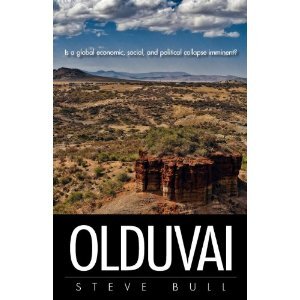



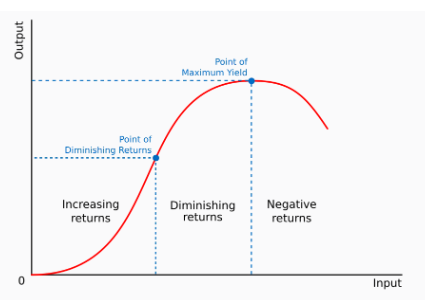
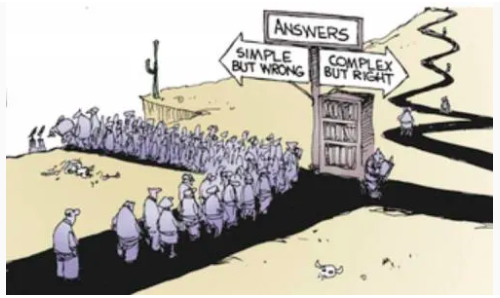
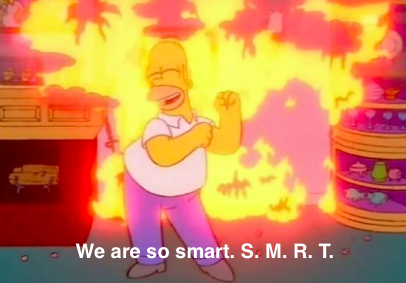
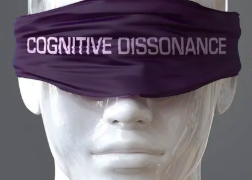



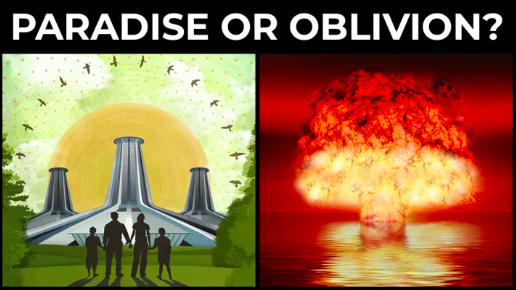

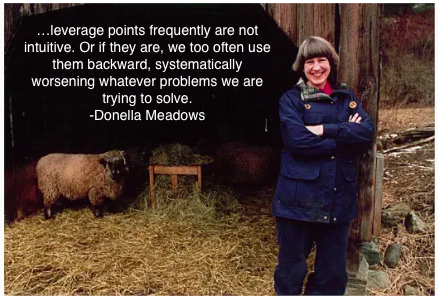


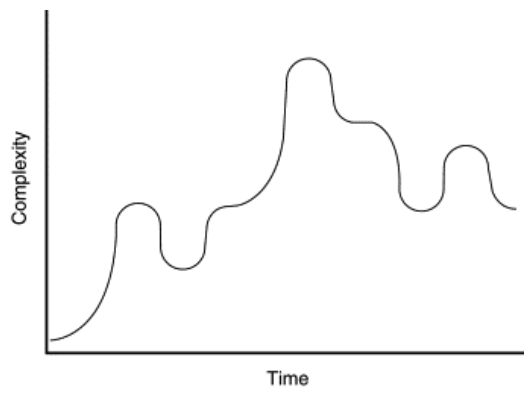 sciencedirect.com
sciencedirect.com 


